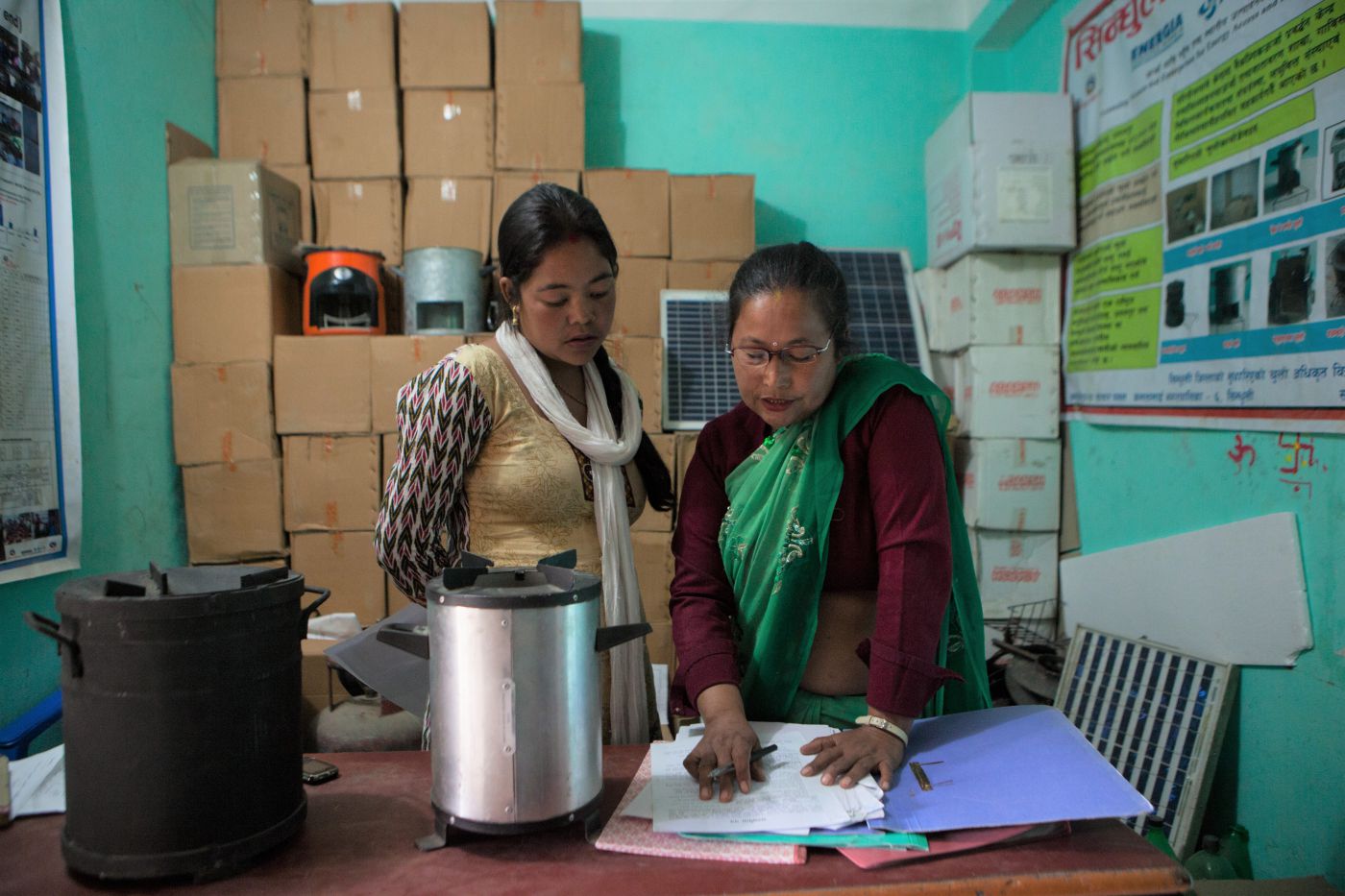“The same energy service may affect men and women in different ways, with different social or economic outcomes,” said Joy Clancy, Professor in Development Studies at the University of Twente, who is the Principal Researcher for ENERGIA’s Gender and Energy Research Programme. “However,” she continued, “there is little independent and empirical evidence of these differentiated impacts. We believe that once we have credible evidence, we can convince both policymakers and the private sector that a gender perspective is beneficial for all sectors and stakeholders.”
The same energy service may affect men and women in different ways, with different social or economic outcomes.
The Gender and Energy Research Programme started in 2014 and will continue through to 2019, thanks to funding from the UK Department for International Development. Prof. Clancy explained the relevance of ENERGIA’s research efforts by referring to the billions of people with no access to electricity and/or clean cooking facilities: “You can care about this from a humanitarian perspective – that we all have a right to a good quality of life of which clean energy is an important component. So our research contributes to identifying the best ways to reach the Sustainable Energy for All targets and achieving the sustainable development goals. Alternatively you can care about it because very large sums of public and private investment goes into the energy sector – these investments need to be effective and provide a good return for energy companies.”
Large sums of public and private investment go into the energy sector – these investments need to be effective and provide a good return for energy companies.
To inform future policies and investments, researchers are examining five key areas: electrification through grid and decentralised systems; productive uses of energy; the political economy of energy sector dynamics; energy sector reform; and the role of the private sector in scaling up energy access.

Prof. Clancy has been providing support to research teams in the formulation of research and the development of the analytical framework in which to place the evidence. She has also written a paper on lessons learned from ENERGIA’s approaches in gender mainstreaming in policy and practice. She summarised key findings thus far as follows:
“The evidence shows that access to sustainable energy can transform the lives of women and men in multiple but different ways contributing significantly in improving their quality of life. Secondly, many marginalised women in rural villages would like to become micro-entrepreneurs. This enables them to become involved in the energy supply chain and creates win-win situations, as villages get access to much needed energy services, women become empowered through income generation and increased self-confidence and self-esteem, and their families benefit from the increased income. Next, women earning an income support the energy transition away from fuelwood to cleaner sources of energy. And finally, irrespective of income level, household electrification enhances children’s access to education in general and girls’ education in particular.”
Many marginalised women in rural villages would like to become micro-entrepreneurs. This enables them to become involved in the energy supply chain and creates win-win situations.
Researchers are currently gathering empirical evidence on the basis of the gaps, priorities and methodologies that they had identified through the review of the current knowledge and research on energy and gender. Apart from informing empirical research, their findings in the first – scoping – phase served as the basis for a policy brief that summarises lessons learned so far and identifies potential policy implications. Some of those implications include the following:
- there is need for gendered approaches at the project level, reflected in all stages and aspects of project development and implementation;
- there is need to not only mainstream gender in formal policy statements, but to also translate these statements into practice, for instance applying ENERGIA’s gender audit methodology can help;
- there is need for statistical services to ensure the availability of the data needed to evaluate the gender impact of policies and interventions;
- there is need for intersectoral coordination in formulating policies and designing interventions.
These implications, as well as the basis for their formulation, are explained in more detail in the latest publication stemming from the research programme: a policy brief, which you are welcome to download and read in full. The policy brief will also be made available in printed form at the SEforALL Forum marketplace.
[tplist headline=”0″ image=”left” image_size=”120″ author_name=”simple” editor_name=”simple” style=”std” include=”158″]











Follow us on: